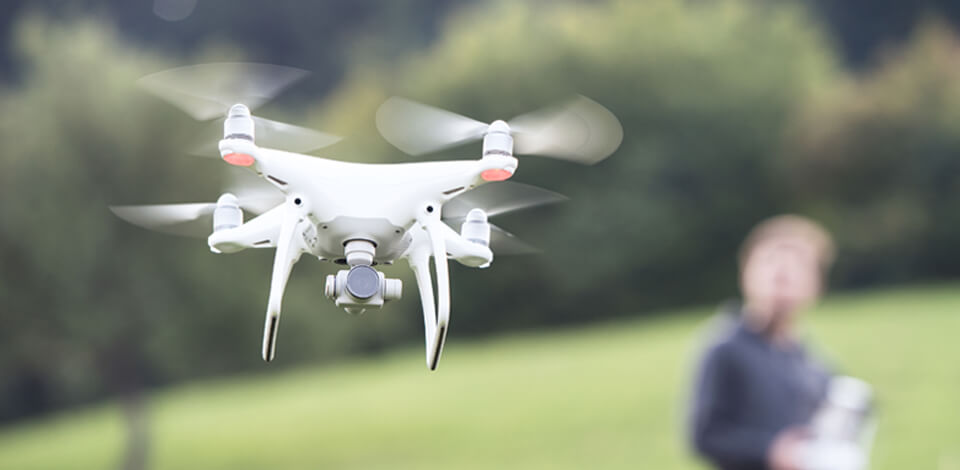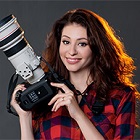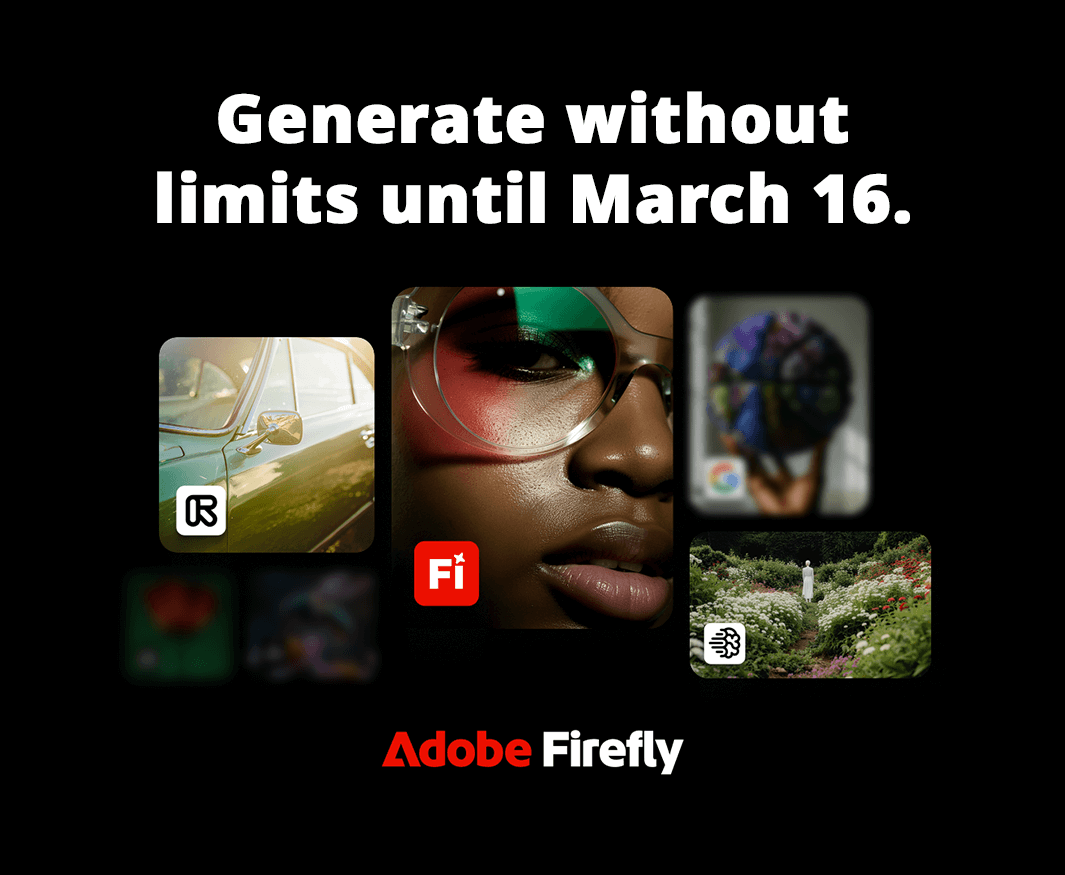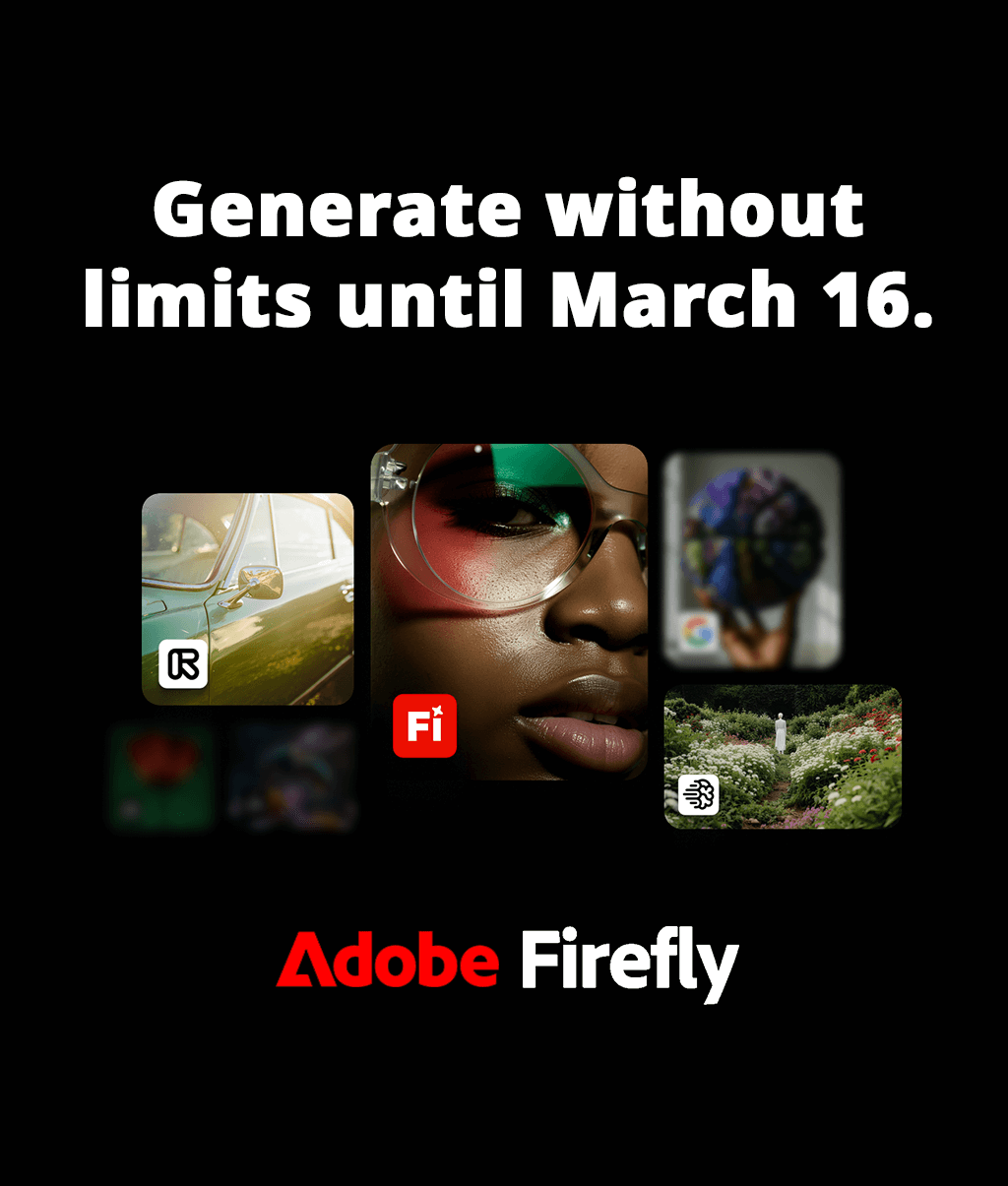10 Best Drones for Filming in 2026

Are you looking for a good drone for filming in 4K? Nowadays, aerial footage has better quality than most people could imagine. Videography drones are lightweight and can record videos up to 30 minutes. Except their technical capabilities and the quality of the footage, they give you a unique opportunity to shoot videos from the birds’ eye view.
Top 10 Best Drones For Filming
Drones are capable of reaching places, where people cannot get, and recording videos of remote objects that are impossible to reach. Your project might benefit considerably from the new perspective and drones can offer the one that you won’t find anywhere else.
Many modern drones come with GPS stabilization and a steady 4K camera, making them easy to operate without any special skills required.
Professional drones allow you to add various accessories for digital video to record high-quality footage, however, they are quite expensive. The quality of video and features that you will get, depend on whether you choose expensive or cheap drones for filming.
1. DJI Phantom 4 Pro V2.0
FixThePhoto editors’ choice
Camera: 20 megapixels | Max Resolution: 4K | Battery life: 30 min | Max Range: 4.3 miles (7 km) | Max Speed: 44.7 mph (72 kph) | Gimbal: 3-axis | Controller: with screen/without screen | Formats: JPEG, DNG (RAW), JPEG + DNG, MP4, MOV
$![]() VIEW IN AMAZON
VIEW IN AMAZON

⊕ Big 1-inch CMOS image sensor
⊕ Sharp 4K 60fps frames with a bitrate of 100 Mb/s
⊕ Stabilized 20 MP ‘Fisheye’ camera
⊕ Obstacle detection in 5 directions
⊕ Smart flight/filming modes
⊕ Great application and flight time
⊖ Not found
Phantom is a groundbreaking product with sturdy and solid aerodynamic mainframe design. It is very lightweight and doesn’t affect the drone’s stability.
The accessories and parts have been redesigned for a quieter flight, which is very nice, and the new OcuSync radio system with 1080p video playback on the monitors is a definite advantage. New Phantom 4 Pro has a new obstacle detection technology, an excellent isolated remote control and a multi-feature application.
Its 20MP extra-sharp camera supports 4K HD 60fps video recording, while the universal joint structure guarantees a steady picture when the drone is moving. This original drone has the best lens, a new smart battery and an improved GPS technology.
The ‘Tap to Fly’ feature to control it from a smartphone, ‘Lightbridge’ video broadcasting, ‘Active Track’ system for the automatic object tracking, a variety of flight modes (‘Sport, ‘Home Lock’, ‘Waypoint’, etc.) are only some of its capabilities.
DJI Phantom 4 Pro can speed up to the maximum of 45mph in ‘Sport’ mode and fly for up to 28 minutes.
- Check out the best 4K drones.
2. DJI Inspire 2
Best optics for pro-grade cinematography
Camera: optional, 24 megapixels | Max Resolution: 6K | Battery life: 27 min | Max Range: 4.3 miles (7 km) | Max Speed: 58 mph (94 kph) | Gimbal: optional 3-axis | Controller: GL6D10A | Formats: DNG, JPEG, RAW, CinemaDNG, ProRes, MOV, MP4
$ VIEW IN AMAZON

⊕ The system of detachable lenses
⊕ 360° camera
⊕ Obstacle detection/avoidance
⊕ Dual operator control with an FPV camera
⊕ Smart/manual flight modes
⊕ Sturdy weatherproof case made of magnesium alloy
⊖ Expensive
⊖ Propellers must be blocked
⊖ Adobe Premiere CC error
DJI Inspire 2 is one of the top 4K drones that has gained popularity among people looking for filming drones. It boasts the quality of a Hollywood camera in a relatively small case. Its smart sensors and high-quality materials make this device perfect for cinematography.
The drone is made of the sturdy magnesium and aluminum composite and has carbon fiber brackets, which give you an unprecedented 360-degree view. Inspire 2 was designed by cinematographers, which definitely adds to its capabilities.
Camera sensors and the Cinecor system of image processing make it perfect for those, who want an ideal cinematic picture. A double-axis FPV-camera allows the pilot to see what is ahead of the device and capture on the other side on camera simultaneously.
It doesn’t only work with two cameras but also has a double IMU, a barometer, and a dual self-heating battery system.
Its multi-feature smartphone app and a special remote control make this cinematography drone super easy to fly. It has too many functions to fit in this description and I can only say that this drone will cope with anything you could imagine.
3. PowerVision PowerEye
Professional camera drone for filming with interchangeable cameras
Camera: 16.1 megapixels | Max Resolution: 4K | Battery life: 29.5 min | Max Range: 3.1 miles (4.9 km) | Max Speed: 40.3 mph (64.8 kph) | Gimbal: stabilized 3-axis | Controller: standard | Formats: JPEG, MP4, MOV
$![]() VIEW IN AMAZON
VIEW IN AMAZON

⊕ Micro-4/3rds system with interchangeable zoom and lenses
⊕ Up to 30 feet object detection technology
⊕ Array of integrated signal sensors
⊕ Real time HD video stream up to 5 km
⊕ Case and batteries included
⊖ Simplified software and features
⊖ Control is too delicate
⊖ Sensitive touchpad
PowerEye is an excellent drone with many advantages for consumers on the market, where one brand dominates. With a Micro Four Thirds camera, it produces a high-quality 4K video. It comes with 2 batteries divided into two sets, while its controls that can be manually folded allow pilots to fit conveniently into a suitcase.
The controlling app and the remote are simple, as there are not too many software features. However, its FPV-camera meets the high standards and has the dual pilot control mode for experienced professionals.
The PowerEye cinematography drone has two camera models. It has a 16MP Micro Four Thirds sensor with a Panasonic Lumix f 14mm F2.5 ASPH lens. There is also a thermal option with an invisible spectrum.
Even though this system is not really compact, it’s professional. This Class A drone allows you to use interchangeable lenses, giving you unlimited possibilities.
It has the split view feature, giving you the first-person view (FPV), which you can see in a ‘picture-in-picture’ mode or on a split-screen with a PowerEye app.
4. DJI Matrice 600 Pro
Created for professional filmmakers
Camera: optional, 50 megapixels | Max Resolution: 4K | Battery life: 38 min | Max Range: 3.1 miles (5 km) | Max Speed: 40 mph (65 kph) | Gimbal: optional, stabilized 3-axis | Controller: A3 PRO supports smartphones and tablets | Formats: optional JPEG, MOV, MP4, TIFF, RAW, CinemaDNG, ProRes
$![]() VIEW IN AMAZON
VIEW IN AMAZON

⊕ Interchangeable cameras and gimbals
⊕ Impressive time and flight range
⊕ Modular load-lifting structure
⊕ Flight control system
⊕ 6 additional batteries
⊖ High price without a camera
⊖ Bulky solid body
⊖ Obstacle detection is too basic
This drone is a professional system for DSLR cameras. It can lift up to 13.2 pounds of payload. The drone is compatible with all the ranges of cameras and DJI Zenmuse gimbals, including DJI Ronin-MX. Besides, it comes with an A3 flight control system that can be upgraded to a professional version. The built-in Lightbridge 2 controller guarantees a steady HD transferring.
Maintenance is simple with the dustproof units, and the active cooling engines provide reliable work for long time intervals.
The drone comes with 6 rotors for additional stability and 6 additional batteries with an average flight time of up to 30 minutes. Its retractable chassis won’t be seen in any video.
It is also compatible with different software, including precise control with the help of DJI GO and DJI Assistant 2 and DJI Software Development Kit, which makes it the best drone for filmmakers.
- View more about the best FPV googles for your filmmaking drone.
5. Yuneec Typhoon H Plus
Six rotors, Intel support and generous extras
Camera: 20 megapixels | Max Resolution: 4K | Battery life: 28 min | Max Range: 1 mile (1.6 km) | Max Speed: 30 mph (48.3 kph) | Gimbal: 3-axis | Controller: ST16S Ground Station | Formats: JPEG, JPEG+DNG, MP4
$ VIEW IN BESTBUY

⊕ 20 MP camera with a sensor stabilizer
⊕ 360-degree picture and video capture
⊕ Obstacle detection from Intel
⊕ Smart and autonomous flight modes
⊕ 6-rotor innovative design
⊖ Some may find the controller unusual
⊖ Batteries without a built-in display
⊖ Video transferring range could be wider
Yuneec has upgraded Typhoon H Plus for aerial videography. This quadcopter for filming comes with a new E90 camera that has a 3-axis suspended 20 MP camera with a 1-inch sensor and ability to record 4K 60fps videos.
It is supported by a large and sturdy frame with 6 rotors, which can return if one of the engines is out of order, and can withstand winds of up to 35 mph. The retractable landing gear allows the 360-degree lens rotation.
The advanced obstacle detection system developed by Intel consists of the Intel RealSense software that prevents collisions and help track objects (including ‘Follow Me’, ‘Point of Interest’, and ‘Curve Cable Cam’).
The Wi-Fi 2.4/5.8 GHz range reaches 1 mile. Typhoon H Plus comes with a 7-inch Android touchscreen, a built-in controller, an additional battery and a sun shield.
6. DJI Mavic 2 Zoom
All-round drone for shooting long-range video
Camera: 12 megapixels | Max Resolution: 4K | Battery life: 31 min | Max Range: 5 miles (8 km) | Max Speed: 44.7 mph (72 kph) | Gimbal: stabilized 3-axis| Controller: yes | Formats: JPEG, DNG (RAW), MP4, MOV
$![]() VIEW IN AMAZON
VIEW IN AMAZON

⊕ 2x lossless optical zoom
⊕ Obstacle detection/avoidance
⊕ Smart flight and filming modes
⊕ Portable and folding
⊕ Great autonomous work time
⊖ Resolution is not the biggest
⊖ Just 8GB of internal memory
⊖ Ignores the DCI aspect ratio
Mavic 2 Zoom is a folding portable drone with powerful and quiet engines, the speed control system and responsive control. Omni-directional sensors prevent falling and also help track objects.
Due to the 2x optical zoom with autofocus and variable aperture, you can change the focal length. The stabilized camera provides a smooth 4K 30 fps picture.
Zoom supports HDR for photo, 12MP sensor processes images and can stitch several together for the 48MP wide-angle. It has a lot of smart features and filming/flight modes, such as slow-motion, viewing angle change or zooming in on an object, extending to rotate around the object and show the surroundings.
Zoom can fly in orbit, combine panoramic images and videos, identify and track objects. TapFly allows you to control it from your smartphone screen, create automatic routes based on the waypoints.
The remote control has a monochrome display with a camera control feature and the ability to connect to a smart device.
Mavic is activated with an informative app. It comes with a powerful battery and an 8GB internal memory. Obstacle detection, a reliable GPS and auto return make Mavic 2 one of the safest drones for videography available on the market.
7. Autel Robotics EVO
The best filming drone with 4K video recording at 60 fps
Camera: 12 megapixels | Max Resolution: 4K | Battery life: 30 min | Max Range: 4.3 miles (7 km) | Max Speed: 44.7 mph (72 kph) | Gimbal: stabilized 3-axis | Controller: with 3.3-inch OLED screen | Formats: JPG, DNG, JPG+DNG, MOV, MP4
$![]() VIEW IN AMAZON
VIEW IN AMAZON

⊕ Compact and foldable
⊕Stable 4K video at up to 60 fps
⊕Video profile journal
⊕UHD and DCI formats support
⊕Obstacle avoidance system
⊕Long battery life
⊕Works with or without a smartphone
⊖ Increased sharpness
⊖The memory card’s slot is very tight
⊖There are no top, bottom, or side sensors
Many pilots call it the best drone for filming. It has a foldable case and attractive bright design. EVO has a clear and sharp 4K camcorder with a 12-megapixel sensor with several preset profiles.
Its positioning system uses both GPS and GLONASS satellites, so the location is fixed very fast. If the connection is lost, EVO will return to the take-off point automatically.
Obstacle detection sensors are located on the nose and back and are used when the drone is configured to track a moving object. You need to draw a frame around the target using the application. The EVO has a MicroSD slot and comes with a 32GB card.
The remote control is compact, with a take-off/landing and returning home buttons. There is also a Pause button. The 3.3-inch color display switches to live broadcast from the camera.
To take full advantage of all the EVO’s features, you need an application. Its battery life corresponds to the level of competition. It can fly at high speeds. Also, investing in a high-quality drone backpack is crucial to ensure convenient and safe transportation of your equipment. To choose the best drone backpack, look for one that offers ample storage compartments and padded protection, allowing you to carry your drones and accessories comfortably while capturing stunning aerial footage.
8. Walkera VITUS 320
Intelligent and portable with AR games
Camera: 12 megapixels | Max Resolution: 4K | Battery life: 25 min | Max Range: 0.93 miles (1.5 km) | Max Speed: 31.1 mph (50 kph) | Gimbal: stabilized 3-axis | Controller: Devo F8S | Formats: JPEG, MP4
$![]() VIEW IN AMAZON
VIEW IN AMAZON

⊕ Stabilized camera
⊕Obstacle detection
⊕Good battery life
⊕AR-games in the FPV mode
⊕Portable and foldable
⊖ Few photo/video formats
⊖ Resolution could be better
Walkera Vitus 320 is one of the best videography drones. Its main advantages are high mobility and foldable design. It has a built-in 3-axis camera and can record stable HD 4K videos.
It supports 1080p FPV at 1.5 km distance. It also demonstrated infrared capabilities and optical sensors to enhance the quality of the recorded video.
This professional quadcopter for filming has a 2-axis GPS platform, an FPV 5.86G transmission system, a professional remote control with 10 channels, powerful brushless motors, and retractable chassis.
This drone also has good tracking capabilities at a distance of up to 8 meters. You can use it without worrying that your drone can fall and get damaged.
9. Parrot Anafi
The foldable drone for travel with incredible camera range
Camera: 21 megapixels | Max Resolution: 4K | Battery life: 25 min | Max Range: 2.5 miles (4 km) | Max Speed: 34.2 mph (55 kph) | Gimbal: 2-axis | Controller: Parrot Skycontroller 3| Formats: JPEG, DNG (RAW), MP4
$![]() VIEW IN AMAZON
VIEW IN AMAZON

⊕ 4K HDR at 100 Mbps
⊕ 21-Megapixel photo
⊕Vertical rotation and 3x digital zoom
⊕Smart shooting modes
⊕Large battery with USB charging
⊕Portable and stable
⊖ No obstacle avoidance system
⊖ The app has paid features
⊖ Slow battery charging
This is the best drone for filming if you need a small, foldable, lightweight and stable device. The quadcopter is made of a mixture of plastic and carbon fiber. It is easy to control thanks to auto take-off/landing and auto-return systems.
Firmware updates have improved GPS and Wi-Fi features. Downward sensors help Anafi stay steady. The gimbal works on two axes that are controlled by the software and can be turned up for a unique shooting perspective.
4K-HDR videos and 21-megapixel images provided by i1/2.4-inch Sony CMOS-sensor are very sharp even in low-light conditions. It has a 2.8x digital zoom lens.
The “Follow Me” mode monitors movements, adjusting to photogenic angles automatically, while “Orbit”, “Parabola”, “Boomerang”, and “Tornado” allow the drone to fly around the object in different ways. There is also a Hyperlapse function for slow shooting speed.
The new Parrot FreeFlight app and remote control are well designed and easy to master. The phone’s HD streaming quality is decent.
The battery provides up to 25 minutes of quiet flight and can be charged via USB-C. The kit includes a 16GB card.
10. Hubsan Zino
Affordable and smart filming drone with 4K
Camera: 21 megapixels | Max Resolution: 4K | Battery life: 23 min | Max Range: 1.6 miles (2.5 km) | Max Speed: 31.3 mph (50.4 kph) | Gimbal: 3-axis | Controller: HT016B | Formats: JPEG, MP4
$![]() VIEW IN AMAZON
VIEW IN AMAZON

⊕ Advanced 3-axis gimbal
⊕ Intelligent flight/shooting modes
⊕ Smart battery and GPS
⊕ Headless mode and start button
⊕ Updated application
⊖ A small range of video transmission
⊖ Poor video streaming quality
⊖The application discharges the smartphone quite quickly
Hubsan Zino is one of the best cheap drones for filming made of durable high-quality polycarbonate. The device has a 4K camera with a 3-axis gimbal capable of shooting videos at 30fps.
You can take very clear pictures using the modern Ambarella image processor with panoramic photo mode. Zino uses GPS for positioning, as well as an internal barometer to ensure stability and intelligent flight modes (return home, waypoints, and linear flight).
The controller is convenient. It has a take-off/landing button. To use your smartphone with streaming video, you must download a multifunctional application.
Hubsan Zino has several smart modes: Panorama, Waypoint, Tracking. The next-generation intelligent lithium-ion battery provides longer flight time. When the battery runs down, the auto-return function is activated.
The headless mode is a terrific option for beginners searching for the best indoor drone. It allows you to fly without the necessity to know where the head and back of the drone are.
Hubsan Zino is a fantastic small drone that comes with some powerful features and a very impressive 4K camera. This is a good cheap alternative to well-known videography drones.
List of the Best Drones for Filming
| Image | Name | Features | |
|---|---|---|---|
 |
DJI Phantom 4 Pro V2.0
OUR CHOICE |
Check PRICE → | |
 |
DJI Matrice 600 Pro
PROFESSIONAL |
Check PRICE → | |
 |
Autel Robotics EVO
BEST 4K AT 60FPS |
Check PRICE → | |
 |
PowerVision PowerEye
FOR ACTION CAMERAS |
Check PRICE → | |
 |
Hubsan Zino
AFFORDABLE |
Check PRICE → |
How to Choose a Drone for Filming?
Currently, drones are more than just great devices that can be used for a variety of tasks. When it comes to drones videography, it is worth considering some features that are more important than others. If you are looking for this type of quadcopter, it is important to pay attention to all these factors. In general, the most important features are as follows:
Camera

High-quality camera. As a rule, the more you pay for a drone, the better camera you get. Models that can capture at least 12-megapixel photos and 4K video were considered in this article.
Camera zoom. The difference between the optical and digital camera zoom is in the lens construction. Optical zoom means that the lens enlarges the image on the sensor, like binoculars. This zoom method is more expensive than digital zoom because the lenses need to be motorized to direct the incoming light on the sensor.
The processor of the digital zoom expands certain areas of the sensor to crop the area. This greatly affects the results you get using drones for videography.
Three-axis gimbal. A good gimbal that stabilizes a camera attached to a drone with accelerometers and gyroscopes, even when it is flying in the windy conditions, is necessary if you want to get good shots. Three-axis gimbal is a common industry standard.
Flight Characteristics

Obstacle avoidance sensors. Sensors have come a long way. Today, some models can detect obstacles approaching them in any direction and adjust the trajectory to avoid a crash. It removes so much stress that we want to consider only those drones, which can detect obstacles approaching their front, back and bottom parts.
Long battery life. Long-life batteries tend to be larger and weigh more, so manufacturers must balance the size of the quadcopter with battery life. However, shorter flight time means fewer shots, shorter videos, and less flexibility. We have reviewed filming with drones with long battery life (at least 20 minutes).
Flight Range. Federal regulations state that you should always keep your drone in sight. Nevertheless, in some cases, the ability of the drone to fly for a particularly large distance without losing contact with the controller can become a very useful feature.
Control

Auto modes. Any videography drone that is worth buying should have a fail-safe returning home mode, which brings the device to the launch point automatically when you press a button or a drone loses connection with the controller.
Do not forget about this feature while selecting the best drone for filming. In addition, we prefer quadrocopters that are pre-programmed in cinematic autonomous flight modes. You can “tell” the drone to follow you when you are snowboarding or flying in a circle to get a cool selfie.
Intuitive controller. Most drone camera controllers look the same. They have two joysticks for flight control and a small number of buttons for specific tasks.
Controllers with a built-in screen or an option to connect a smartphone can help you get additional features using the application and expand the functionality more intuitively.
FAQ
- • What safety precautions should filmmakers take when using drones?
Filmmakers using drones should prioritize safety by checking local regulations, obtaining necessary permits, and avoiding no-fly zones. Moreover, maintaining line-of-sight with the drone, regularly inspecting equipment, and flying in suitable weather conditions all contribute to safe and responsible drone filming.
- • How does drone filming compare to traditional ground-based filming?
Using drones, filmmakers can capture sweeping landscapes, dramatic tracking shots, and intricate details from above, adding a new dimension to storytelling and visual creativity.
- • Can drones be used indoors or are they primarily for outdoor filming?
Drones can be used indoors, but their usability indoors is more limited due to potential obstacles, GPS signal interference, and restricted space for navigation. While some specialized indoor drones exist, drones are primarily associated with outdoor filming where they can freely maneuver and capture expansive views from the sky.
- • How has the use of drones impacted the filmmaking industry?
Drones have democratized cinematic creativity, allowing for more immersive storytelling and visually stunning sequences at a fraction of the cost.
The importance of an intuitive controller becomes particularly evident during filming sessions. Imagine trying to capture a sweeping aerial shot or execute a precise maneuver while fumbling with a complicated controller. It not only hampers creativity but also increases the chances of accidents or missed shots.
With an intuitive controller, filmmakers can concentrate on framing the perfect shot, adjusting the camera settings, and smoothly maneuvering the drone, all with confidence and precision.


































